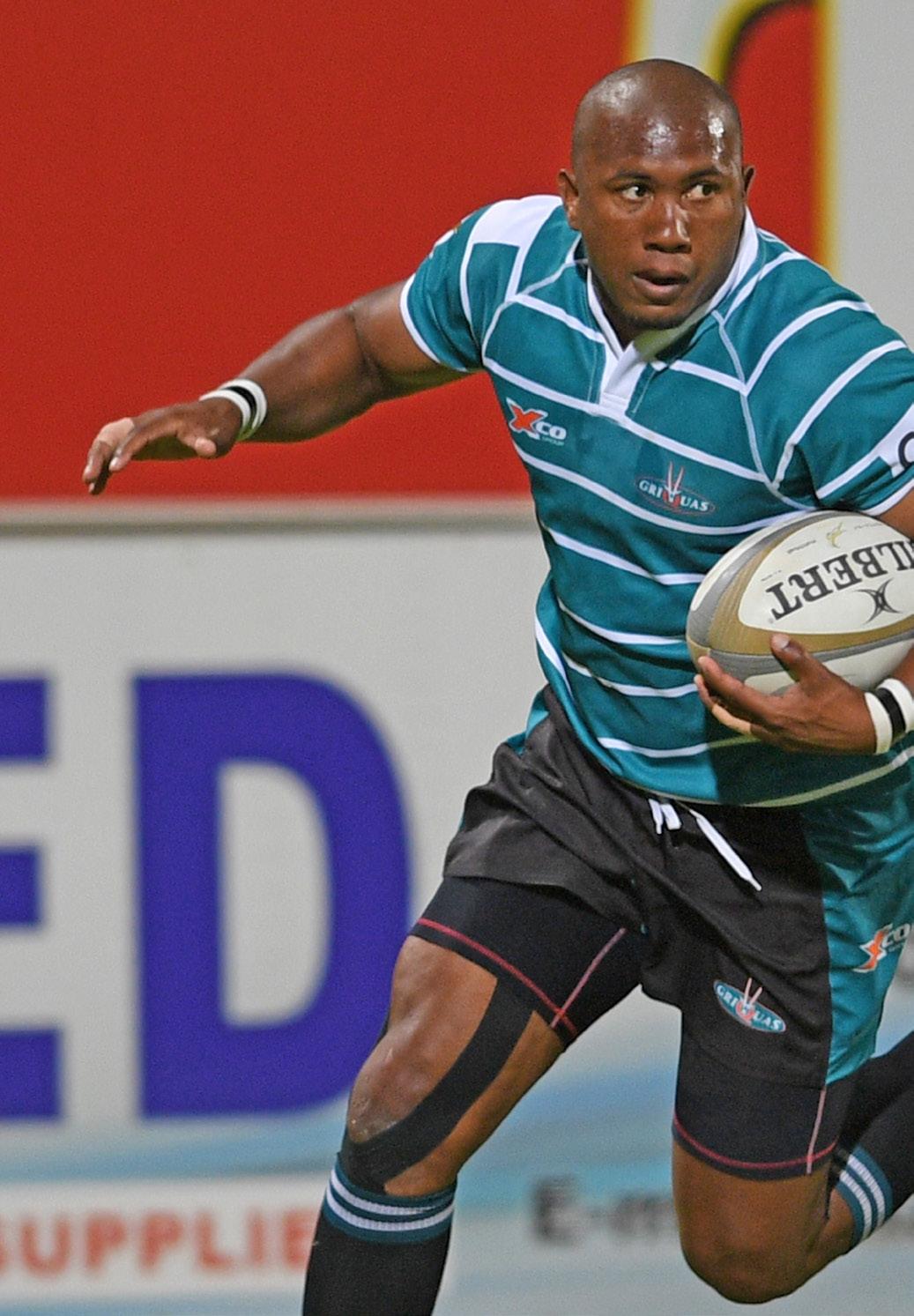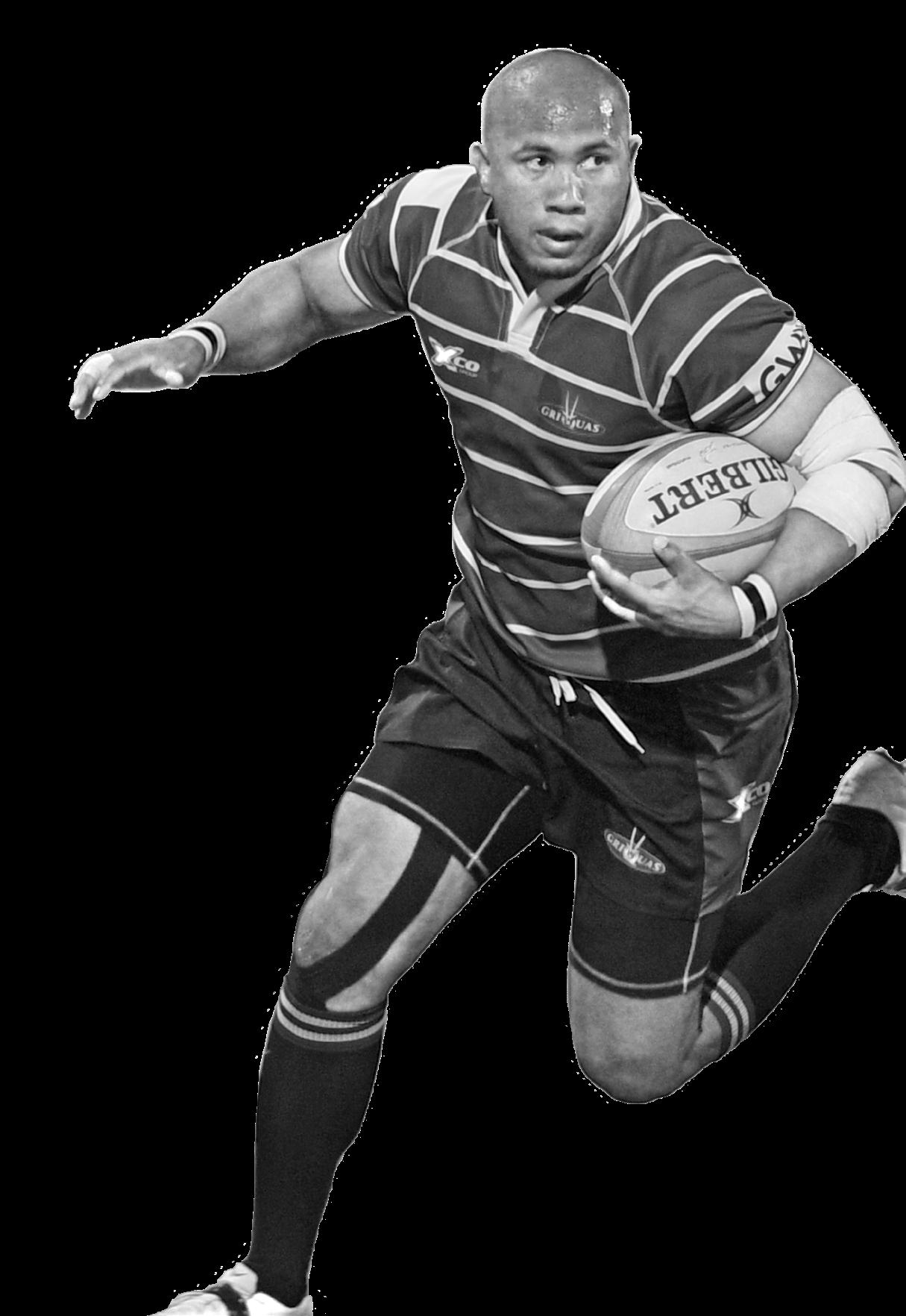
5 minute read
CHAIRMAN’S REPORT
CHAIRMAN’S
REPORT
Advertisement
WHERE ARE THE OPPORTUNITIES FOR GROWTH?
In 1914, World War I broke out, suspending international sports for the next four years. To make matters worse, the Spanish flu pandemic broke out in 1918 and claimed an estimated 50 million lives worldwide. For a number of years, the world stood still, but neither the war nor the Spanish flu resulted in the end of the world, even if it might have felt that way at the time.
Interestingly, the rivalry between the Springboks and All Blacks was born out of the ashes of the war and the Spanish flu. After Germany surrendered in November 1918, South Africa and New Zealand were among the Allied Nations who kept a small task force in Europe in the months leading up to the signing of the Treaty of Versailles in 1919, which formally ended World War I. During that time, the military forces from South Africa and New Zealand first clashed on the rugby field as part of an international tournament hosted by King George V of England. The South African contingent then invited the New Zealand Forces team for a sixweek tour to South Africa on their way back home, setting the stage for the first test tour between the official national teams in 1921.
Disruption presents new opportunities. Our response to disruptions and setbacks is what defines us. Life would be much easier if we had full control over how it unfolded, but that’s not how life works. With Covid-19 still very much a part of our lives at the time of writing, we need to ask ourselves how we as individuals and as an industry will respond to the most devastating catastrophe in recent history and seize the opportunities that may present itself.

FAFFA KNOETZE
OUR RESPONSE IN 2020
The year 2020 could not have been more challenging for MyPlayers. In last year’s chairman’s report, I expressed the view that “More needs to be done in 2020 to build a stronger South African rugby ecosystem…” and I referred to various “…initiatives to protect and strengthen our rugby ecosystem”. Little did I know that the most severe attack on our rugby ecosystem, one that was to come from the blind side and had the potential to break it, was only a few months away.
In March 2020, Covid-19 hit the rugby industry to the core when all rugby matches and competitions were suspended and later cancelled. With revenue from match tickets, advertising, sponsorships and broadcasting rights in the balance, the rugby industry had no choice but to make very unpleasant decisions. In many discussions, where one normally looks for winwin solutions, the industry had to focus on limiting the losses. Salary reductions were likely the most painful decision of them all. I want to thank and commend the vast majority of South Africa’s professional rugby players for making this huge sacrifice without which professional rugby would likely not have survived.
Safeguarding the players’ employment status and security of income in the months following the period in which all tournaments were suspended, was always the primary consideration. Yet, those conversations and discussions on when to resume play were never had without also factoring in the mental and physical wellbeing of the players. Mentally, Prof Pieter Kruger and his team from North West University deserve a lot of credit for the reactive and proactive steps taken by MyPlayers to look after the players’ mental wellbeing during this challenging year. Medically, Dr Konrad von Hagen did incredible work to ensure that the
health and safety of the players were not jeopardized by making them play when the risks for serious and career-ending injuries were still substantial.
In retrospect, salary reductions, withdrawal from commercially lucrative competitions and prioritising the players’ physical and mental wellbeing were all decisions that collectively ensured the survival of the broader industry. This, in turn, puts the industry in a position to seek out and create opportunities that may be as impactful on the fortunes of South African rugby as was the case when the Boks agreed to that first tour of New Zealand in 1921.
During the latter parts of 2020, we were encouraged to see the intent with which SA Rugby introduced meaningful changes to the women’s game. Two developments stand out. First, SA Rugby (re-) contracted 19 women’s players who will be used across the fifteens and sevens codes. With the Rugby World Cup being hosted in New Zealand in 2021, it was vitally important to provide our fifteens national side with the stability and support needed to produce their best performance to date on the global stage.
Furthermore, SARPA and SA Rugby concluded a ground-breaking remuneration agreement for women’s players. With the dual-code participation condition being included in the player contracts, South Africa has for the first time not only contracted women’s sevens players, but also fifteens players. Also, more benefits and an increased budget for women’s rugby were formalised in the remuneration agreement. These benefits include, for the first time, remuneration agreements specific to the World Cup, such as match fees.
While there is still a lot of work to be done to improve the environment and conditions in which our women’s players can reach their full potential, we were encouraged to see SA Rugby’s commitment to growing the women’s game.
IN CLOSING
Many South Africans have lost loved ones during the past year, often Covid-related. This just intensified the trauma these months have inflicted on all of us, and I want to express my most heartfelt sympathies. While life continues, that does not mean we should live in denial and pretend to be unaffected by what has happened. I encourage everyone to embrace the current reality as an opportunity for personal growth and emerge from these ashes as a constructive force in shaping the future. Let’s seize the opportunities that may present itself.
Lastly, I would like to thank the MyPlayers board for their strategic direction and oversight of the organisation’s affairs, our CEO, Eugene Henning, and the rest of the MyPlayers team for the excellent work delivered under the most trying circumstances during 2020. I would also like to express gratitude towards the player representatives who participate on the committees of the various entities in the Players’ Organisation for their valuable contributions.




